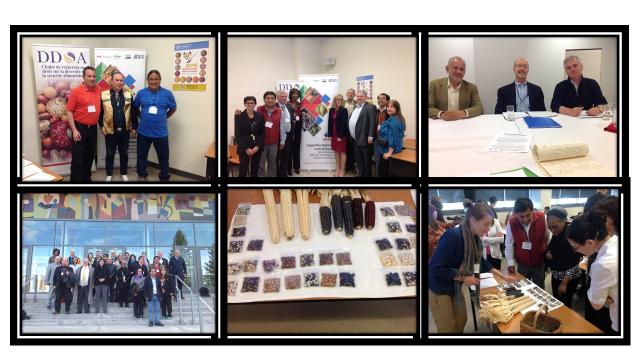Taking place on the heels of the news that the Government of Canada will remove its permanent objector status to the United Nations Declaration on the Rights of Indigenous Peoples, the workshop jointly hosted by PROCINORTE/NORGEN Task Force, Agriculture and Agri-Food Canada and the University of Laval, was very timely.
Quebec City, Canada. The meeting which took place in Quebec City, had active participation of First Nations communities in Canada as well as researchers who have worked with indigenous groups in North and Central America. It was interesting to note that although the 3 countries had varying levels of commitment to the relevant international agreements, there were common challenges and features which could benefit from shared approaches. This was reinforced by the Legal Research Chair in Food Diversity and Security of Laval University, Dr. Genevieve Parent, who pointed to the provisions of the fair access and equitable benefit sharing clauses in the 3 main international instruments governing plant genetic resources.
The meeting was a huge success in that it presented a space for dialogue and the sharing of research, strategies, practices by stakeholders involved in conservation and utilization of diversity in crops plants, with particular emphasis on crops relevant for indigenous agriculture in the USA, Mexico and Canada. The workshop’s objectives included:
- To increase understanding of the status and of the importance of indigenous plant genetic resources for food security.
- To present the Canadian Three Sisters project and share Canadian, Mexican and American experiences in conservation and utilization of plant genetic resources.
Mme. Linda Collette, former Secretary of the FAO Commission on Genetic Resources ably moderated the sessions which included scientific researchers from national Governments, legal specialists, and indigenous groups. Several valuable recommendations were made, among which was for indigenous groups in the 3 countries to share their practices and to continue research & development activities in collaboration with the government bodies, with transparency and mutual respect.
NORGEN is one of PROCINORTE’s 4 Task Forces supported by IICA. The workshop was an activity undertaken as part of its 2016 work plan in meeting its stated objectives.












